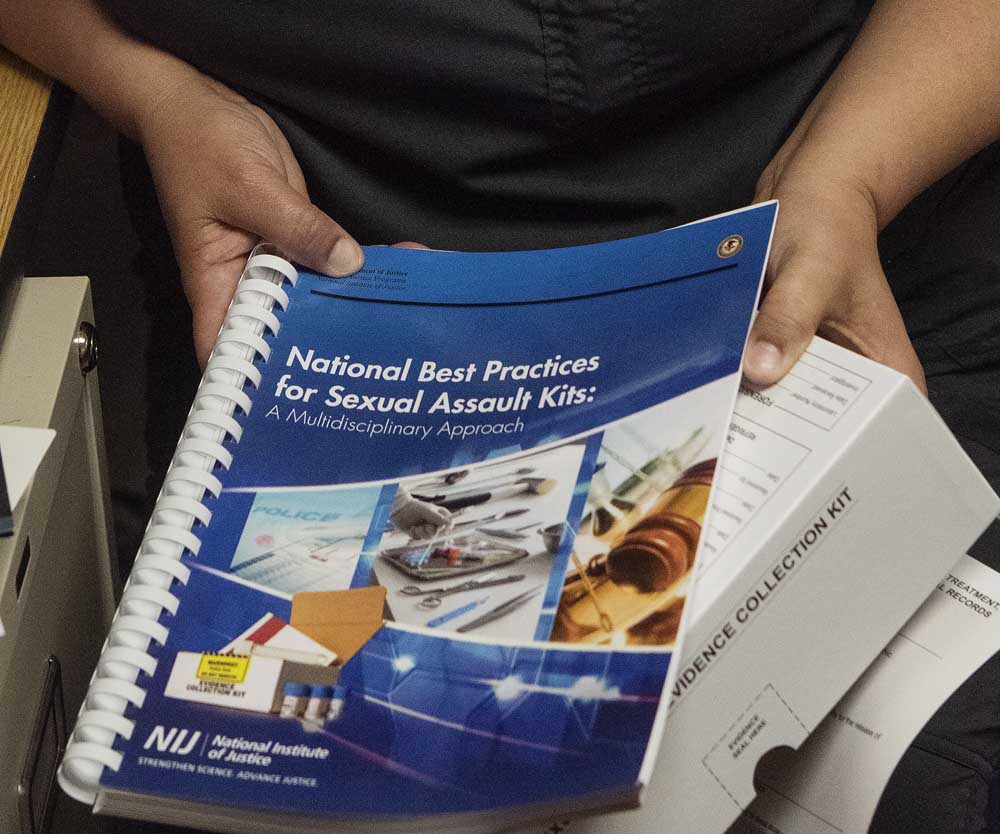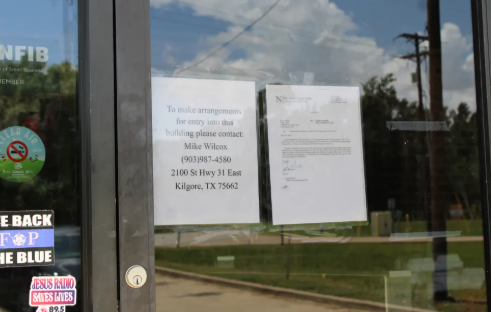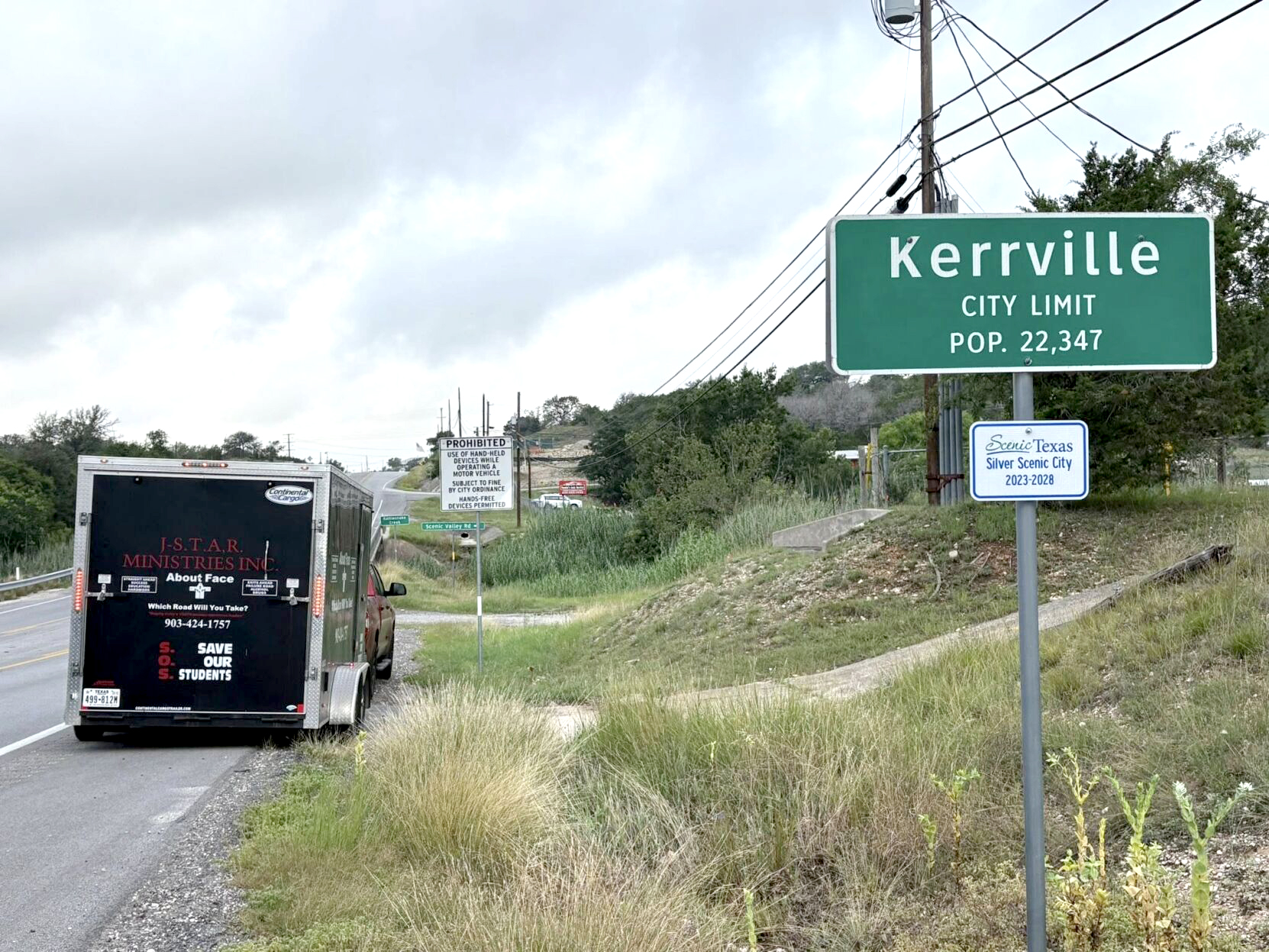Forensic nurse sheds light on sexual assault examinations, victim care
Published 10:38 am Tuesday, April 16, 2019

- Rebecca Fears, forensic nurse coordinator at UT Health-Tyler, talks about guidelines she uses when administering a sexual assault evidence collection kit at her hospital office on Wednesday April 10, 2019. (Sarah A. Miller/Tyler Morning Telegraph)
A UT Health forensic nurse said she believes the first step to survival and healing starts with the first step victims of sexual assault take when they leave the care of the forensic nurse team and walk out the door.
“We have a trauma informed victim centered approach to care,” Rebecca Fears, forensic nurse coordinator at UT Health-Tyler said.
Trending
Fears has spent the last two decades learning about sexual assault victims and survivors and the care they need following their trauma.
“We start by believing,” Fears said. “We collect evidence and give victims the health care they need after an assault has occurred and get them on the path to survival.”
She said the test is not painful and is done with a few cotton swabs that are not placed anywhere inside of the body.
“We can only collect what goes in the box,” Fears said. “No blood or urine is collected. Its Q-tips, forms and envelops. Its nothing to be afraid of.”
During the test, Fears said she and her team work hard to gain rapport and trust with the victims and make them feel as comfortable as possible.
She said the test takes a couple of hours or however long is needed and the victims have to turn off their social media apps while the test is going on.
Trending
“We don’t rush them,” she said. “I like to make balloon animals for the children. We also make balloon swords and sword fight to ease the children’s mind.”
After the test, the nurses give the survivors written material, directions on how to care for themselves, order their medications that arrive at their door the following day.
The East Texas Crisis Center provides advocates to help victims through the test and reporting process. They also provide the victims with a bag of clean clothes.
Fears said victims of sexual assault who come to the hospital are male and female and of all ages.
Fears and her team can also collect evidence for victims age 18-64 who may not want to report the assault to law enforcement.
“We send the kit to the Texas Department of Public Safety and give the survivor a number,” Fears said. “They have up to two years to decide if they want to move forward.
Anyone 17-years-old and under has to talk to law enforcement officials about the assault.
Fears said the best evidence can be collected up to 120 hours after the assault.
The hospital processes about 20 kits per month each with a barcode that can be tracked bay the victim.
“They can go online and find the kit and see where its at in the process,” she said. “We give the kit to law enforcement within 72 hours and to the lab in seven days, but no later than 30 days.”
She said there are special considerations when tests go to the front of the backlog and that’s when there is an unknown assailant. This, she said is rare because most people know the person who assaulted them.
Currently in Texas there are 2,138 untested kits that have not been processed, according to End the Backlog a group working to identify the extent of the nation’s backlog and best practices for eliminating it.
“We are in the middle of pandemic violence,” Fears said. “Its socially acceptable. We have to recognize, learn and teach consent at a young age.”
Fears said she became a forensic nurse after a sexual assault victim came to a hospital she worked at for an exam and was handed the kit and told to do the exam.
“It was frustrating,” Fears said. “As nurses we like to do things right.”
Fears said she would not mind if she didn’t have a job, but says the best thing about being a forensic nurse is helping sexual assault victims get the care they need.
She said her team works hard to take care of each other and watch out for each others own mental health needs.
“We have a licensed counselor who sees the team quarterly,” Fears said. “We decided as a group to do that and are mandating it on each other. We look out for each other and know when its time to take a break and do some self care.”






